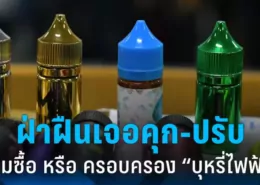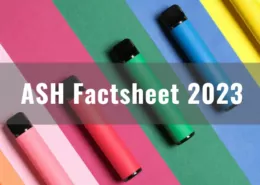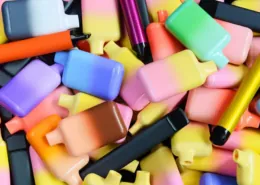Hawaii Implements 70% Wholesale Tax on Vaping Products
Hawaii’s state legislators recently passed a “tax parity” law that would subject vaping products to the same tax rate as combustible cigarettes. If Governor Josh Green signs the bill into law, vaping products would incur a 70 percent wholesale tax, making it one of the highest in the country.
The bill, SB975 SD2 HD3, was negotiated during a long conference session between the State House and Senate before the conference deadline for this year’s legislative session. The legislative session adjourns on May 4, but it isn’t clear if and when the governor will sign the legislation. If signed, the tax will take effect from January 1, 2024.
What Does the Bill Entail?
The tax parity bill defines vapes as “tobacco products,” and bans sales to consumers by out-of-state retailers. This essentially bans online sales by sellers outside Hawaii. Although the bill’s goal is to discourage underage vaping, research by health economists indicates it could actually encourage smoking. This is partly due to the elimination of price advantages that often drives many smokers to try e-cigarettes.
Cigarettes and vapes are economic substitutes. When the price of cigarettes increases, nicotine users shift to e-cigarettes and vice versa. However, with the high tax on vaping products, users will not have an alternative in Hawaii.
Is Hawaii the Only State to Impose Such a High Tax on Vaping Products?
Several other states have taxed vaping products at high rates. Minnesota has the highest vape tax rate of 95 percent, but it is only applied to nicotine-containing products imported from out-of-state. Vermont comes in second, with 92 percent of the wholesale price, including products without nicotine. Massachusetts imposes a 75 percent wholesale tax on all products and has banned flavored vapes. California has a tax rate that approaches Hawaii’s, and it uses a combination of wholesale and retail taxes.
Read more:
Does Hawaii Have Any Other Tax Bills Related to Vaping Products?
A separate tax bill regarding vaping products failed in the committee earlier this year. A bill that would have banned flavored vaping products and flavored tobacco also failed in the session. Last year, a flavor ban passed in Hawaii, but it was vetoed by Governor David Ige, who concurred with anti-vaping and tobacco control groups that it wasn’t strict enough.
Will the High Tax Help to Reduce Underage Vaping?
Although the goal of tax parity is to discourage underage vaping, research shows that it might have an adverse effect. High taxes might encourage smokers to turn to conventional cigarettes, leading to an increase in smoking rates. While advocates of this tax argue that it will discourage underage vaping, previous research indicates that high taxes may not be effective.
What Are the Implications of This Bill?
Hawaii’s decision to impose such a high tax on vaping products might significantly impact the vaping industry by leading to an increase in prices. This could affect individuals who use e-cigarettes as a smoking cessation device. The bill will also have implications for businesses and vendors who sell vaping products in Hawaii. Banning out-of-state retailers might cause small businesses to suffer.
Conclusion
Hawaii’s decision to impose the same tax rate on vaping products as combustible cigarettes has raised many questions. While the goal is to discourage underage vaping, research shows that it might lead to an increase in smoking rates. With the high tax rates, many individuals may not be able to purchase vaping products, leaving them with no alternative. This decision will also affect businesses and vendors who sell vaping products in Hawaii.
FAQs
1. What is the vape tax rate in Hawaii?
Hawaii legislators recently passed a “tax parity” law that would subject vaping products to a 70 percent wholesale tax.
2. When will the vape tax take effect?
If signed by Governor Josh Green, the tax will take effect from January 1, 2024.
3. Why does Hawaii want to impose this tax on vaping products?
The goal of tax parity is to discourage underage vaping.
4. Will the high tax rate help to reduce underage vaping?
Previous research indicates that high taxes may not be effective in reducing underage vaping.
5. How will this tax affect businesses and vendors who sell vaping products in Hawaii?
This decision will impact businesses and vendors who sell vaping products in Hawaii as it imposes a high tax rate and bans out-of-state retailers.
- Is Vaping While Driving Illegal in New Mexico? - June 28, 2025
- Vaping Laws in New Mexico: Guide of Age, Flavors, Tax & Rules - June 28, 2025
- Vaping Laws in New Hampshire: A Comprehensive Guide for You - June 27, 2025









